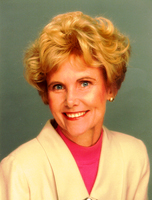Acknowledgments
Author, Contributors, Funders
Courage is not the absence of fear;
it is the making of action in spite of fear.— M. Scott Peck —

The Author
Dr. Sheryl Burgstahler is the founder and director of DO-IT (Disabilities, Opportunities, Internetworking, and Technology) at the University of Washington. DO-IT promotes the success of people with disabilities in postsecondary academic programs and careers. It sponsors projects that increase the use of assistive technology and stimulate the development of accessible facilities, computer labs, electronic resources in libraries, web pages, educational multimedia, and Internet-based distance learning programs.
Dr. Burgstahler is the director of the Northwest Center on Access to Science, Technology, Engineering, and Mathematics (AccessSTEM), funded by the National Science Foundation (cooperative agreement #HRD-0227995) to increase the participation of people with disabilities in science, technology, engineering, and mathematics (STEM) careers. She codirects the National Center on Accessible Information Technology in Education (AccessIT), funded by the National Institute on Rehabilitation Research of the U.S. Department of Education (grant #H133D010306) to coordinate a nationwide effort to promote the use of accessible information technology. She also codirects The Alliance for Access to Computing Careers (AccessComputing), funded by the National Science Foundation (grant #CNS-0540615) to increase the participation of people with disabilities in computing fields.
Dr. Burgstahler has published dozens of articles and delivered presentations at national and international conferences that focus on the full inclusion of individuals with disabilities in postsecondary education, distance learning, work-based learning, and electronic communities. She is the author or coauthor of six books on using the Internet with precollege students. Dr. Burgstahler has extensive experience teaching at the precollege, community college, and university levels. She is the director of Accessible Technology Services within Computing & Communications and Affiliate Associate Professor in the College of Education at the University of Washington. More about Dr. Burgstahler can be found on her website.
The Contributors
Thanks to the more than one hundred successful young people and adults with disabilities for sharing insights and advice that guided the development of this book. Special thanks to Randy Hammer, Jessie Shulman, Larry Scadden, and Todd Stabelfeldt for sharing their personal stories and to Carole Isakson for conducting interviews and assisting with editing. In addition, for contributing to the content and editing of the book, thanks go to Scott Bellman, Beverly Biderman, Tresa Bos, Dan Comden, Lyla Crawford, Deb Cronheim, Tanis Doe, Nan Hawthorne, Doug Hayman, Natalie Hilzen, Phyllis Levine, Hope Long, Sara Lopez, Kathryn Pope Olson, Lynda Price, Mary Proudfoot, Michael Richardson, Nancy Rickerson, Amy Schieffer, Lisa Stewart, Mark Uslan, Aimee Verrall, Teresa Welley, and Sue Wozniak.
Some of the content of this book was adapted from the comprehensive collection of DO-IT publications at www.washington.edu/doit. Readers will find there some of the same content adapted for different audiences, as well as other publications, videos, and resources that promote the success of people with disabilities and the use of technology as an empowering tool. The most relevant references can be found in Chapter Fourteen of this book.
The Funding Sources
Partial funding for the creation of this book was provided by the Mitsubishi Electric America Foundation, a nonprofit foundation jointly funded by Mitsubishi Electric Corporation of Japan and its American affiliates. The Foundation's mission is to contribute to a better world for us all by helping young people with disabilities, through technology, maximize their potential and participation in society. Additional funding was provided by the National Science Foundation (cooperative agreement #HRD-0227995). Any questions, findings, or conclusions expressed in these materials are those of the author and other contributors and do not necessarily reflect the views of the funding agencies.